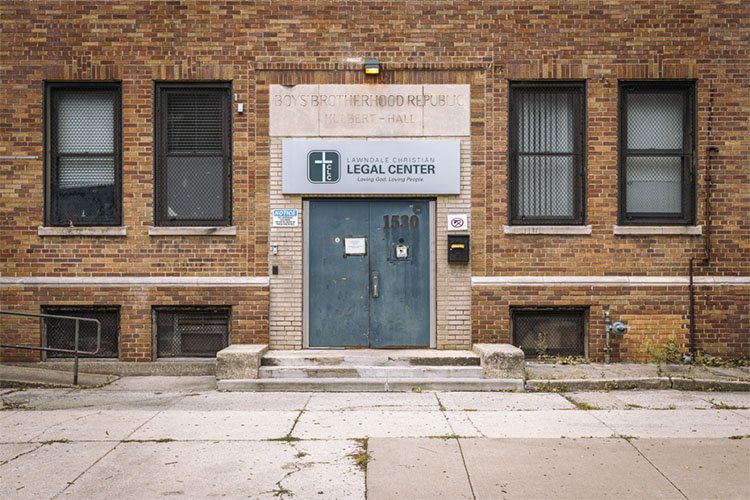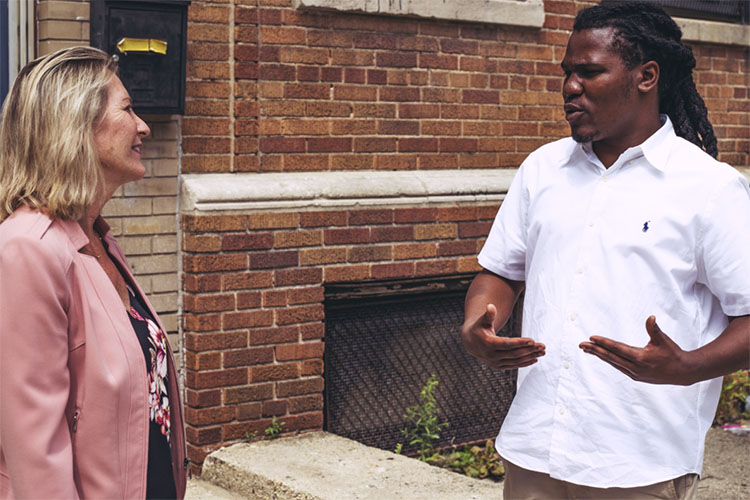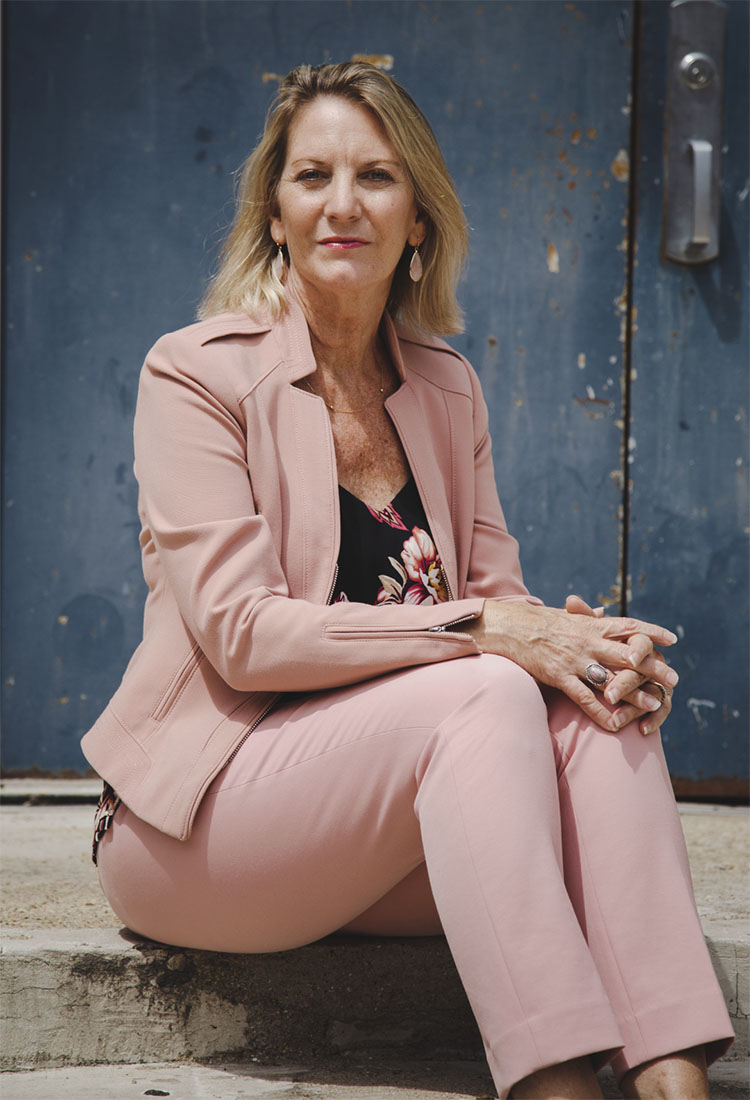Justice
An unemployed veteran with mental health issues commits a nonviolent crime in Chicago’s North Lawndale neighborhood, which could put them behind bars for years. Instead, they visit the Cook County Veterans Treatment Court and walk out under an individualized program to stay out of the criminal system.
The veterans court is one of several groundbreaking reforms and programs that Amy Campanelli (LAW ’87) created as Cook County public defender from 2015–2021. Courts specializing in mental health and drug-related offenses were also brought to a department that is charged with legally defending people who cannot afford private attorneys.
Now, Campanelli has joined Lawndale Christian Legal Center as vice president of restorative justice, where she uses her decades of courtroom experience to guide her staff, and clients, toward a better future. She knows what programs can succeed and can give a second chance to those who are trapped in the legal system. Beyond providing representation in court, the legal center has partnered with nonprofit and government groups to provide housing, employment, and other basic needs to help people escape the criminal cycle.
“[The legal center] is meeting the social and justice needs in the community,” Campanelli says. “We provide the legal and social needs of everyone we represent. Meeting legal needs is important, but social needs are just as important.”
Lester Finkle has worked with Campanelli on and off since 1987, the year that Campanelli became a public defender. Finkle served as chief of staff during Campanelli’s term as Cook County public defender, and he says that he knew Campanelli’s drive would bring changes to Chicago’s legal system.
“She was always very enthusiastic in that she did everything possible for the client. She was the one who put herself on the line, who was there for the client,” Finkle says.
Campanelli’s first major initiative was in helping to create the Cook County Mental Health Court Program. She saw the problems that public defenders faced, but it wasn’t until becoming a high-level manager in 2003 that she began implementing new ideas to support clients. Campanelli began working with judges to start the first felony mental health court in the nation.


“I thought it was a great, brilliant idea. People in the sheriff’s office said a quarter of prisoners in jail were mentally ill, and that it was the biggest mental health institution in the state,” Finkle says.
As the county’s chief public defender, Campanelli implemented a program ensuring that a defender was available at Chicago Police Department stations where arrestees could be “forced to sign a confession,” Campanelli says.
“[Chicago] has a reputation for wrongful conviction,” she says. “We have to have lawyers available 24/7.”
“There are all these issues [in the legal system]. Let’s go to the root cause: What is going on in their life, and how can we support rehabilitation instead of arrest, incarceration, release, repeat. We’ve got to stop that,” Campanelli adds.
When her term as Cook County public defender ended in 2021, Campanelli wanted to continue helping people avoid incarceration.
“I became a public defender with the goal to make [the office] much more holistic and client-centered. I had six years to do it, and I did everything I could possibly do,” Campanelli says.
Campanelli worked with Lawndale Christian Legal Center during her time in public defense. As a community-focused organization, the center was able to support local residents facing the criminal system in ways that Campanelli only dreamed of as a government employee, such as providing housing, legal assistance, and other basic services.

—Amy Campanelli
“When someone says [their clients] need to ‘pull themselves up by their bootstraps,’ they don’t understand what the youth in these neighborhoods are going through. It’s not good public safety to trap youth in a flawed, racist system,” Campanelli says.
Campanelli is an advocate for restorative justice, which she says is a philosophy of “looking at a crime as a harm to the community and, therefore, how can we heal that harm?” The idea brings the victim of a crime and the perpetrator into a “healing circle” where they discuss the crime, a person’s needs, and whether there should be consequences. Campanelli is also helping the legal center connect with other community-based organizations to bolster what her clients say is their greatest need: housing.
“We’re identifying landlords to place clients in wonderful apartments. It’s guaranteed money [for the landlords], and the clients don’t want to lose a stable home that many haven’t had before,” Campanelli says.
Lawndale Christian Legal Center is growing as ideas about rehabilitation—not arrest—become reality, and Campanelli wants to help realize these plans in the coming years.
“I love being in North Lawndale. The legal center is right in the middle of a residential block in the community, and people embrace the center,” Campanelli says.